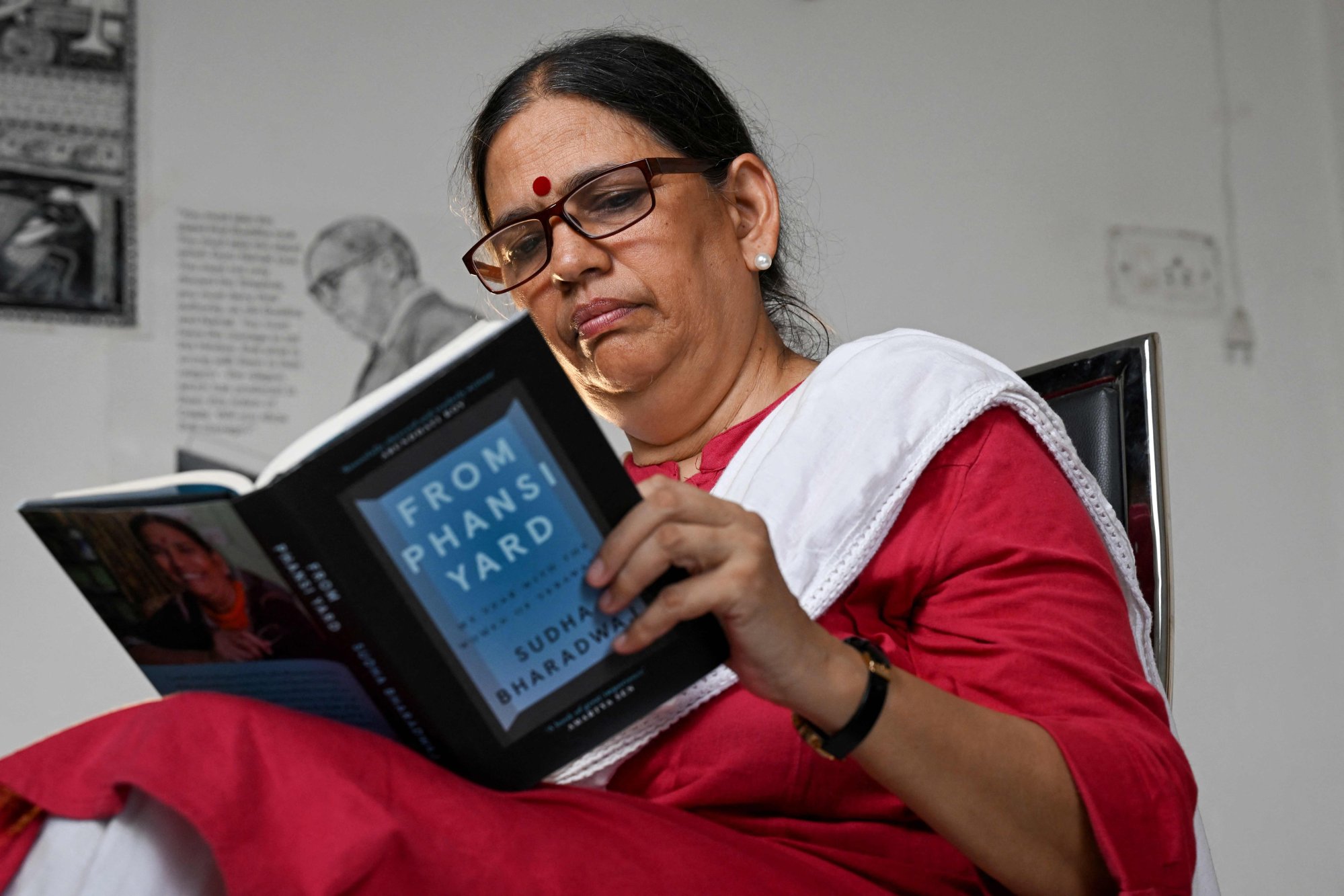[ad_1]
“The patriarchal bias goes very deep,” she stated.
Forced out of Myanmar ‘like dogs’, Rohingya refugees face persecution in India
Forced out of Myanmar ‘like dogs’, Rohingya refugees face persecution in India
Women make up lower than 5 per cent of India’s jail inhabitants.
Of them, greater than two-thirds are but to be convicted and are in detention awaiting trial, in line with authorities statistics from 2015, the newest obtainable.
“All the dynamics which play out in society are reflected even more sharply in the prison,” Bharadwaj stated.
“So whatever prejudices and discriminations you see outside in the society, they are very much reflected there.”
US-born Bharadwaj, a dedicated lawyer of the poor, moved to India and renounced her US citizenship to assist underprivileged communities in Chhattisgarh.

But the commerce unionist was arrested in 2018 and accused of giving speeches that allegedly incited violence, expenses she has denied.
“I was still a much more privileged person than most of the people around me,” she stated from her house in Mumbai.
“Most of them were of course poor, and a lot of them were uneducated – some of them were completely illiterate.
“They didn’t know what was happening. They were abandoned by their families most of the time. So, I was really in a sea of misery”.
Three bail purposes had been denied earlier than Bharadwaj was launched beneath strict situations that barred her from discussing her case.
India’s ‘untouchable’ women face rejection from schemes meant to help them
India’s ‘untouchable’ women face rejection from schemes meant to help them
But in a guide researched whereas behind bars, she has detailed the scenario of the ladies she met and tried to assist.
Titled From Phansi Yard, or, the “hanging” yard, the guide particulars tales from inmates at Yerwada jail in Pune.
There had been many instances the place the ladies she wrote about may have been granted bail.
“Either they were too poor to afford a good lawyer, or the legal aid lawyer didn’t really bother to even come in and meet them,” she stated.
Bharadwaj wrote “hundreds” of purposes for older ladies unwell, however all had been rejected.
“Only those who you very much require to be in jail should be in jail,” she stated, including that bail must be “the rule and jail the exception”.
Bharadwaj wrote of jailed ladies being handled as second-class residents, and inside that, those that are members of India’s 200-million-strong Dalit castes – as soon as topic to the discriminatory observe of “untouchability” – going through an additional problem.
Among the folks she met was a Dalit girl jailed after her employer accused her of stealing jewelry.
One girl was accused of murdering her landlord, regardless of no clear proof offered and her pleas of innocence.
Another was arrested for the suicide of her daughter-in-law just because she was in the home when she died.
A widow was arrested after her son allegedly killed her lover in a match of rage. The son was bailed, however not his mom.
Bharadwaj additionally wrote of how the Pardhi folks, stereotyped as troublemakers by police, had been usually picked up for a minor offence, then charged with extra critical crimes.
“The police are trained to basically round up all the Pardhis around whenever there is a crime which has not been solved,” she stated.
“You could see that the sentencing appeared to be much harsher when it came to lower caste people.”
[adinserter block=”4″]
[ad_2]
Source link
